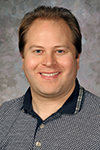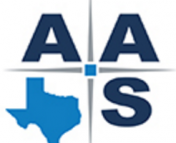In this series of posts, we sit down with a few of the keynote speakers of the 229th AAS meeting to learn more about them and their research. You can see a full schedule of their talks here!

Just the mention of asteroid bombardment is frightening to most, but for Dr. Bottke it is all fun and games.
Bottke is a research scientist at the Southwest Research Institute (SwRI), and will be giving the Kavli Foundation Plenary Lecture, which kicks off each AAS meeting with a presentation on recent research of great importance. Bottke’s talk is titled “Early Solar System Bombardment: Exploring the Echoes of Planetary Migration and Lost Ice Giants.”
Early in his life, Bottke recalls watching the Apollo moon landing on television and deciding to study astrophysics. However, while pursuing his B.Sc. in Physics and Astronomy at the University of Minnesota, he wasn’t hooked by one of the many open problems in the field. When searching for graduate schools, he found the Planetary Science program at the University of Arizona and quickly realized that planetary sciences were his true passion. He is now an astronomer at SwRI, still pursuing these same interests.
Bottke’s talk will cover a vast extent of topics, ranging from planet formation to asteroid impacts. Much of this work has been aided by the recently developed Nice model of the solar system. The Nice model proposes a late migration of the giant planets, which were initially in a much more compact configuration. Bottke will highlight that new models reveal that the solar system may have lost a Neptune-sized planet during this migration process. Additionally, he will cover the importance of both close encounters and bombardment onto the early planets. As he puts it, “We need close encounters with Jupiter for a lot of reasons,” which will be enumerated in the keynote.
Unlike many speakers at AAS, Bottke works for a nonprofit R&D organization (SwRI) rather than a university. He encourages young researchers to consider this route if your passion for science lies in directly engaging in research. Unlike many professors, Bottke points out that, “I get to work on research most of my time” within a collaborative environment. With so much time devoted to research, it is important to Bottke that he is always having fun with the problems he is working on. He encourages young researchers to do the same: “Find the science topic that you really enjoy!”
To learn more about Bottke’s work, be sure to see his talk at 8:30 AM on Jan. 4th at #AAS229!

